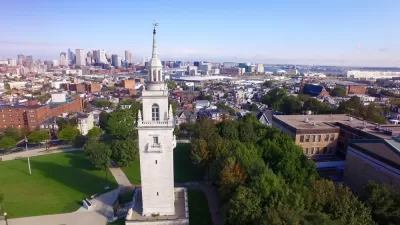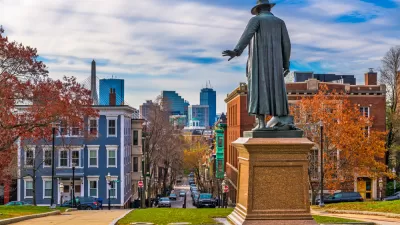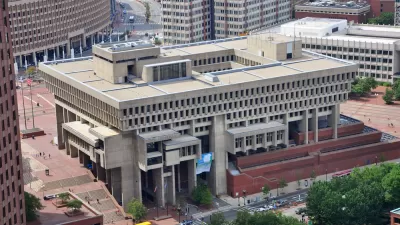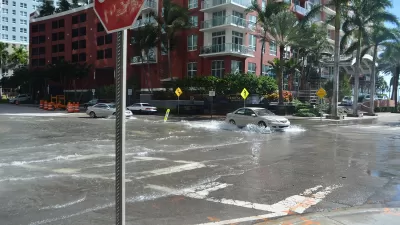Recently approved changes to the zoning code in South Boston are designed to reduce the number variances granted by the Boston Zoning Board of Appeals. They also increase the number of parking sports required for new developments.

Andrew Ryan reports on the recent adoption of "new zoning regulations that will impact virtually the entire neighborhood" of South Boston.
"The rules are an attempt to restore order to a booming neighborhood that can feel like a giant construction site, and a sense of fairness to a development and permitting process often shaped by influence and special exemptions,' explains Ryan.
The changes approved last month by removing bottlenecks in the permitting process, which proponents hope bring consistency to the development process, both for developers and residents.
Critics of the changes, however, point to the new zoning's increased parking requirements, which are likely to raise the costs of some developments beyond feasibility. "Under the new zoning rules, each new unit must come with 1.5 parking spots, up from 0.9 spaces," reports Ryan. "Since parking requirements are always rounded up, a new building with three two-bedroom apartments must include five parking spots. (Studio and one-bedroom units need only one space.)"
An article by Ryan and Mark Arsenault from September provides additional background on the new zoning code.
FULL STORY: New South Boston zoning could mean more parking and slow down development

Study: Maui’s Plan to Convert Vacation Rentals to Long-Term Housing Could Cause Nearly $1 Billion Economic Loss
The plan would reduce visitor accommodation by 25,% resulting in 1,900 jobs lost.

North Texas Transit Leaders Tout Benefits of TOD for Growing Region
At a summit focused on transit-oriented development, policymakers discussed how North Texas’ expanded light rail system can serve as a tool for economic growth.

Why Should We Subsidize Public Transportation?
Many public transit agencies face financial stress due to rising costs, declining fare revenue, and declining subsidies. Transit advocates must provide a strong business case for increasing public transit funding.

How to Make US Trains Faster
Changes to boarding platforms and a switch to electric trains could improve U.S. passenger rail service without the added cost of high-speed rail.

Columbia’s Revitalized ‘Loop’ Is a Hub for Local Entrepreneurs
A focus on small businesses is helping a commercial corridor in Columbia, Missouri thrive.

Invasive Insect Threatens Minnesota’s Ash Forests
The Emerald Ash Borer is a rapidly spreading invasive pest threatening Minnesota’s ash trees, and homeowners are encouraged to plant diverse replacement species, avoid moving ash firewood, and monitor for signs of infestation.
Urban Design for Planners 1: Software Tools
This six-course series explores essential urban design concepts using open source software and equips planners with the tools they need to participate fully in the urban design process.
Planning for Universal Design
Learn the tools for implementing Universal Design in planning regulations.
Ascent Environmental
Borough of Carlisle
Institute for Housing and Urban Development Studies (IHS)
City of Grandview
Harvard GSD Executive Education
Toledo-Lucas County Plan Commissions
Salt Lake City
NYU Wagner Graduate School of Public Service





























